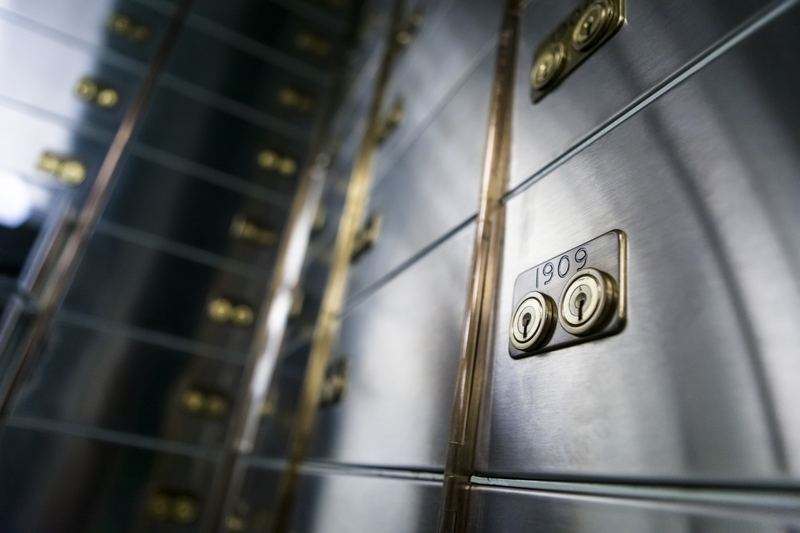After you complete your estate plans, what’s next? You will want to store them in a safe location so that they are available when they become necessary. Once you have stored your documents, you should ensure that your heirs, or at the very least, the person who holds your power of attorney, know where you have stored the documents.
Some law firms will store your original documents for you, but you can exercise your right to keep them somewhere of your choosing. You have several options for how to store your documents. Some of these options are better than others for keeping your documents safe. Let’s look at three of those options.
Safety Deposit Box
Many people choose to store important documents such as estate planning directives in a safety deposit box at the bank. While this is typically a safe storage space for your documents, it can cause difficulty down the road. If you choose to use a safety deposit box, you will need to ensure that your appointed executor has access to your safety deposit box.
They will need both the key to the box, and the bank will have to grant them access to your safety deposit box, so you need to ensure that the bank knows who has your permission to access your safety deposit box. Often, the very document your representative needs to verify you have given them permission to access your safety deposit box is in the box itself. If you choose this option, you may also want to have your representative as a co-owner on the account associated with the safety deposit box.
Fire Safe Box
A fire-safe box is an excellent choice for storing your documents at your own home. This is a good weather-proof option for storing important documents at home. With this option, your representative will simply need access to your home and the key to your fire-safe box.
If you aren’t comfortable giving your representative a key to your home, you need to determine how they will access your home to retrieve the documents that they need. Perhaps a neighbor or family member can let them into the house. That’s something you will need to decide on and make them aware of your choice.
Legacy Drawer
Another option is something that financial planner Dave Ramsay coined the term for, a legacy drawer. The legacy drawer is a place in your home, not necessarily a drawer, where you store all your important papers.
The legacy drawer is potentially the easiest for your representative to access, but it is also potentially the least secure. Of course, if that drawer is in a file cabinet that can be locked, the security level is increased somewhat. However, you still have the issue of how your representative will access the documents when necessary.
Tell the Appropriate People
Once you determine where you will be storing your documents, you need to tell your personal representative where you plan to store them. You also need to provide them with the combination or key for any locked boxes or drawers.
You should also talk to whoever might be affected by your choices. Those people include those who may be acting as your health care proxy or your financial power of attorney. These individuals also need to know what your wishes are in case you are unable to communicate them yourself at a later time.
Stop Confusion Off at the Pass
Destroy any old estate planning documents that may have been left behind. Old documents are confusing, and they might lead to someone contesting your new documents. Also, don’t write anywhere on the current documents. If you need to make changes, you need to contact your attorney because a handwritten change may not be valid.
Closing Thoughts
Creating your estate planning documents is just the first step for being prepared for the future. Once you get them created, you must safely store them and tell the people affected by your directives how to find them. Ensure that your representative and those who are named in any powers of attorney know how to access your documents when they’re needed.
Resources
Client provided





